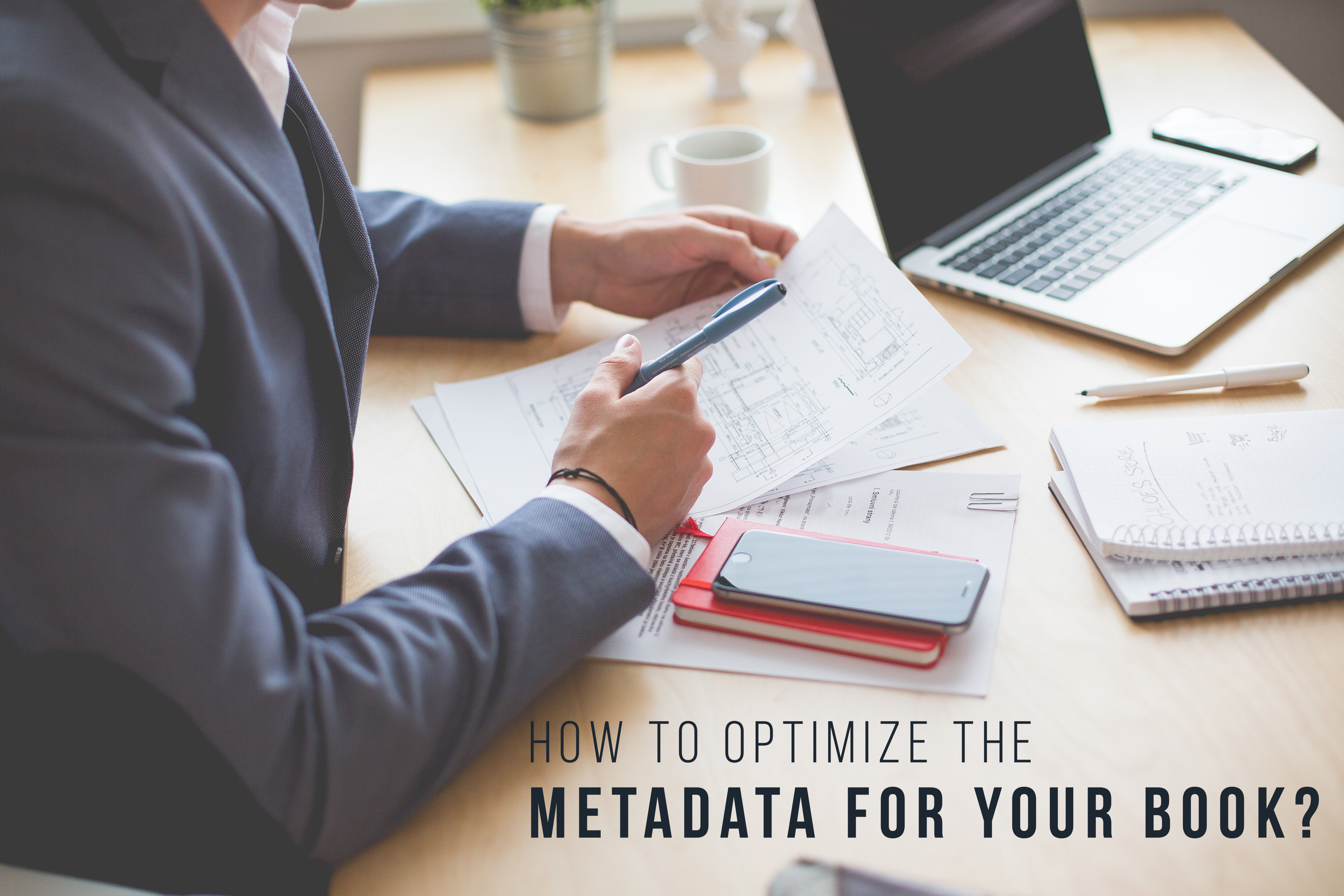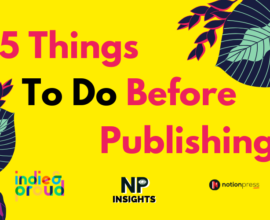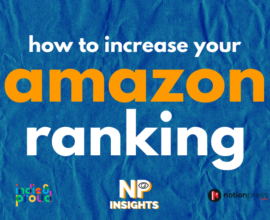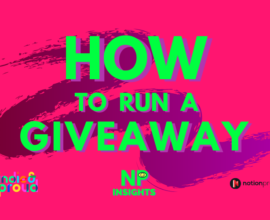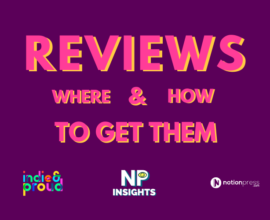How to Optimize your Book’s Metadata for better Sales
Of late, we’ve all been creative to attract potential readers towards our book and get them to buy it. But, on this post, we’ll try to do something different “ something more technical. Moving away from our social media strategies on Facebook, Twitter, Instagram, our blog, and the likes, we are going to work on optimizing our book’s metadata to reach to readers who are looking for books. We’re going to take some inspiration from search engine optimization (SEO) techniques, tweak it a bit, and use it to the advantage of our book.
One of the primary reasons we need to work on the technical aspects of book marketing is because the number of people preferring ecommerce websites to buy books has increased. Our potential readers are all across the globe and it makes great sense to make use of this opportunity and take our book to the masses. As writers, our goal is to optimize our book so they appear on search results. Apart from word-of-mouth, if there’s a way potential readers can discover new books, it’s through an online search. When customers search for books, they use certain phrases called keywords (more on this later). The keywords are matched for relevancy against the title and description provided in the metadata, depending on which books are displayed on search results. To understand, just type in the keyword Hindu mythological fiction on Google and look for results. The search engine will throw a list of books and you’ll find The Immortals of Meluha as the first book. When you click on it, you can read the description of the book, below the book’s title on the Amazon link. One of the crucial pieces of information that influences the search engine results is the description of the book, which is in-turn part of the book’s metadata. So, if someone’s in the mood for some mythological fiction and they randomly use the keyword, there is a lot of chances that the consumer will purchase this book. So, by providing the right information in a book’s metadata, we can convert a random visitor to a purchaser. Read to find out how we can go about doing it.
But What is a Metadata?
Technically, metadata is the underlying data that defines the data for any product more like data about data. As far as publishing is concerned, metadata is the information about your book. Earlier, when there was no internet, metadata referred to the information librarians or bookstore personnel used to locate a book easily. This includes details like a book’s ISBN number, the title, and the author name. But as things evolved and as digitalization set in, a book’s metadata started comprising of more information than just these. Now, metadata includes information that allows potential readers to know what a book is all about.
Metadata can be classified into two “ enhanced metadata and core metadata. While the latter includes the conventional information such as a books title, price, category, ISBN number, and author name, the former includes information from a book’s marketing perspective like information on the description of the book, blurb, author bios, reviews, quotes, and sample chapters.
Now, to promote our book effectively on ecommerce websites and get it listed on search results, we have to leverage the potential of enhanced metadata. To compliment the use of enhanced metadata, it is also necessary that we feed accurate details on core metadata.
How to Optimize Metadata?
Before you begin, let’s just relax a bit and affirm that you don’t have to be a technical expert to optimize your book’s metadata. All you have to do is have some common sense and understand your market. So, to begin with book optimization, you need to start with keyword research.
Keyword Research
As we know, keywords are the search terms users use to seek specific information. The goal at this stage of optimizing our book is to come up with keywords, include them in the appropriate metadata section, provide as much information about our book, and top search results. So, depending on your book’s genre, look for keywords consumers are most likely to use to find your book. For instance, if you’ve written a self-help book on overcoming depression, you will have to use keywords such as overcoming depression, depression books, books on dealing with depression, self-help books for depression, books for depressed people, and more. When you do keyword research, remember to use a long-tail keyword (a keyword that is not restricted to one word alone) because people never use just one term to look for books. Also, one of the important things you should remember here is that when you use more than two phrases on keywords, arrange the keywords on the most logical order. For example, books on dealing with depression makes more sense than depression dealing books.
For further assistance, you can also use tools like Google Analytics to discover new keywords readers use to discover new books. The keywords that you’ve compiled should be then organically used in the description section of your book within the first 50 to 100 words for search engines to effectively track your book and display it. The description should include the most appropriate details about your book that consumers will find it helpful. Compile a bunch of keywords on an excel sheet and keep changing them frequently to reach all kinds of searchers. Besides, you can also infuse additional keywords that consumers are more likely to use and further optimize your book for enhanced visibility. Use tools to study trends in the market and cycle your keywords depending on currently prevailing trends. This becomes very interesting as you study your market because once you get to understand your market, you will know about the behavior of your readers and find better ways to cater to their needs.
For best results, you can optimize the title of your book based on the keywords that you use. If one of your primary keywords is your book’s title (like if the keyword Overcoming Depression is part of your title or your subtitle), it massively boosts the visibility of your book. So, when titling, consider the keywords consumers use to search and title your book meeting their requirements.
What you shouldn’t include
Contrary to what can be included, there are some words that shouldn’t be part of your keywords. For instance, never include superlative words such as best, most effective, and the likes because people no longer click on such self-proclaimed books. Also, do not include words that offer temporary information about your book such as its discounted price, available now, on sale, latest, recent, and more. Similarly, do not misspell words and make sure your text has proper grammar and punctuation and that it adheres to universal standards when it comes to acronyms and technical specifications
Categorize it Right
Categorizing your book right can make all the difference to its sales. If you’ve written a murder-mystery with a dose of romance involved and if you’re categorizing it under romance fiction, it doesn’t make sense. You will lose out on your target audience because the readers of your books are those who read murder-mysteries. Fans of romance novels who read your wrongly categorized book may find it disappointing and fans of murder-mystery novels won’t be able to find your book at all. To reach to your readers, you have to categorize it right. For accurate positioning, Amazon has nodes and sub-nodes, where you can refine your categories and place your book as precisely as possible. Lets consider, again, that you’ve written a science fiction book with elements of fantasy involved; Amazon allows you to categorize it under books, under science fiction, and further under fantasy. This will allow consumers to find your book when they search on categories as well.
When you work on your book’s metadata, you’re only boosting the effectiveness of your other book promotion strategies on social media. An optimized metadata will enhance your book’s visibility and will multiply the chances of your book getting sold. As first-time authors, especially if you don’t have much expertise in the technical aspects of marketing, this may appear complex. But when you learn how to do this and implement book optimization technique, the rewards you will reap will be just phenomenal. So, implement now and get things going. Good luck!

